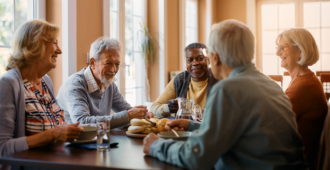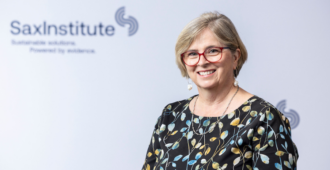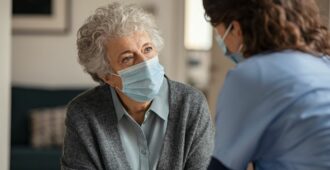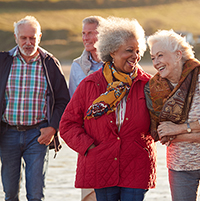
From new links between alcohol and cancer, to foods that combat memory loss, researchers from all over the world have been using the 45 and Up Study this year to make important discoveries into healthy ageing. Here’s what the Study showed us in 2020:
A drink a day won’t keep cancer at bay
Just seven additional drinks a week raises the relative risk of alcohol-linked cancers by an average of 10%, according to a Cancer Council NSW study from November 2020.
Researchers tracked more than 220,000 participants of the 45 and Up Study over five years, during which time around 17,000 cancers were diagnosed.
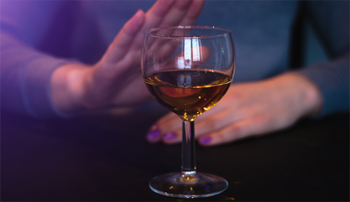
Seven types of cancer were linked to alcohol consumption – namely liver, oesophagus, mouth, pharynx, larynx, bowel and breast cancers. Consumption of more than 14 drinks a week raised the absolute cumulative risk of these cancers by 4.4% in men and 5.4% in women, compared with drinking less than one drink per week.
The strongest association was with liver cancer: people consuming 7-14 drinks a week had a 48% increase in the relative risk of liver cancer compared with less than one drink a week.
The authors point out that although Australians are familiar with the message that smoking and exposure to UV rays can cause cancer, they are much less likely to realise the link with alcohol. Read more
New link between diet and memory loss
An Australian study based on the eating habits of 139,000 older Australians found that eating lots of fruit and vegetables was linked to lower odds of memory loss and comorbid heart disease. A diet rich in protein (such as meat, milk, and especially fish) was also associated with a better memory.
Possible explanations for this include the high level of antioxidants found in fruit and vegetables that might protect neural damage in the brain, and omega-3 fatty acids in fish, which are known to play an important part in memory loss prevention.
Importantly, the research also revealed how food affects us differently as we age – finding that people over the age of 80 with a low consumption of cereals such as oats and muesli had the highest odds of memory loss and comorbid heart disease.
In the fight against memory loss, this research suggested there may be a need for Australians to eat differently once they hit 80, adopting a diet that’s rich in fruit, vegetables and protein. Read more
For many cancer survivors, life after treatment can be just as good
With improved detection and treatment, cancer is increasingly a chronic disease – and many people are living well with it, according to this study from The Australian National University (ANU).
Researchers drew on data from the 45 and Up Study to compare the quality of life of 22,505 cancer survivors and 244,000 who did not have cancer. They found that post-treatment, patients with common cancers such as breast, prostate, bowel cancer and melanoma rated their quality of life almost as highly as those who had never had cancer.
However, researchers flagged that people with cancers such as lung cancer, multiple myeloma and non-hodgkin’s lymphoma rated their quality of life as poorer than other cancer survivors and those without cancer. The worst outcomes were reported in people with a physical disability.
By bringing together the experiences of many thousands of Australians, this study reveals the majority of cancer survivors are living well, while also shining a light on how we can better support those who continue to suffer.
Cancer patients not getting equal access to radiotherapy
Radiotherapy is one of the mainstays of cancer treatment, but a 2020 study found some Australian cancer patients are missing out on the radiotherapy they need.

Researchers from Cancer Council NSW and the Ingham Institute, UNSW analysed 17,800 NSW residents who had been diagnosed with cancer – 30% of whom received radiotherapy.
They found that women were less likely to receive radiotherapy than men, and the very old (aged over 80) and the middle-aged (45-59) were also lacking in treatment. Distance seemed to play a part as well, with patients living 100 kilometres or more from their nearest radiotherapy centre less likely to receive the treatment. Patients with comorbidities or who needed help with day-to-day tasks also showed lower rates of radiotherapy.
This is the first population-based study to reveal which Australians are (and aren’t) receiving radiotherapy – findings that the researchers hope will improve future patient access to an important, potentially life-saving treatment. Read more
Loneliness: the other pandemic of our times
Older people may be particularly hit hard by loneliness during the pandemic, as they are more likely to live alone and have been strongly advised to distance themselves from family members and friends. And research using data from the 45 and Up Study reveals just how much this solitude impacts mental health, showing a strong correlation between lower levels of social activity and higher levels of psychological distress.
But the good news, in these COVID days, is the study’s finding that contact with friends and family by phone is protective against psychological distress. That means people confined to their home can materially lessen the effects of social isolation by simply getting on the phone, or maybe zooming with their family if their technological skills are up to it. Read more
What’s next for the 45 and Up Study?
2021 is set to be another big year for the Study, with a new round of surveys going out to participants to see how Australia is coping with COVID-19. If you’d like to stay up-to-date on the Study, join the 45 and Up facebook community, sign up for our newsletter or explore more of the research here.


